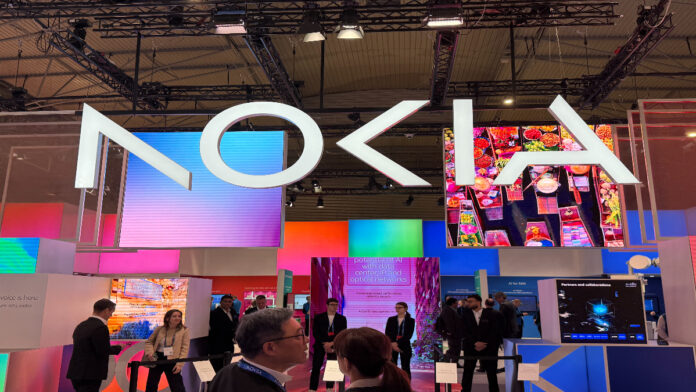Nokia said that the new deal will cover Elisa’s operations in Estonia and Finland
In sum – what to know:
Extended 5G deal – Nokia will upgrade Elisa’s mobile network in Finland and Estonia over the next four years, supporting faster speeds, wider coverage and readiness for 5G Advanced.
AirScale and ReefShark at core – Elisa’s network will feature Nokia’s latest energy-efficient AirScale RAN, Massive MIMO radios and ReefShark-powered basebands to enable AI, AR/VR and industrial automation use cases.
Cloud-native core for 5G services – Nokia will deploy its CNCS and core solutions to streamline operations, reduce energy use and prepare Elisa’s network for next-gen applications in healthcare, transport and industry.
Nokia has secured a new four-year contract extension by Finnish telecommunications operator Elisa to enhance the capacity, coverage and speed of its mobile network, the former said in a release.
The new deal, which will cover the telco’s operations in Estonia and Finland, will prepare Elisa’s network for 5G Advanced era supporting ultra-fast speeds and low latency at near-instantaneous levels, which will be key for applications such as artificial intelligence (AI), virtual reality, augmented reality and industrial automation.
Nokia highlighted that its energy-efficient AirScale Radio Access Network (RAN) portfolio will support Elisa’s efforts to deliver premium 5G services to its customers. Under this contract, Nokia will supply its latest generation of Advanced 5G-ready Habrok 32 Massive MIMO radios and its Pandion portfolio of FDD multi-band remote radio heads for comprehensive coverage across multiple deployment scenarios.
The vendor will also supply its high-capacity compact Tuuli 26e and Ponente, Lodos and Levante AirScale baseband solutions. Nokia also said its portfolio is powered by its energy-efficient ReefShark System-on-Chip technology.
Sami Komulainen, chief operating officer at Elisa, said: “We are investing in new 5.5G features that enhance AI usage in phones, computers and businesses. The world’s first customers are already using 5.5G in Elisa’s network, and together with Nokia, we are expanding access to this technology.”
The expanded deal also stipulates that Nokia will also introduce its new AirScale Dual Boost base station technology, designed to help telcos maximize the potential of their base station assets.
Tommi Uitto, president of mobile networks at Nokia, said: “This important contract extension with Elisa, will take their 5G network to the next level, delivering ultra-fast speeds and low-latency with our latest Advanced 5G capable AirScale portfolio. The Advanced 5G era will drive innovation in industries such as manufacturing, healthcare, transportation and energy, creating new jobs and economic opportunities.”
Additionally, Nokia’s cloud-native voice core solution, Cloud Native Communication Suite (CNCS), will drive the deployment of new 5G services and improve operational efficiencies, including lower energy demand and hardware requirements.
In October last year, the telco’s Head of Mobile Access Tiina Höckert told RCR Wireless News that the telco’s 5G network covered 95% of Finland’s population, adding that the carrier had plans to expand the coverage even further in the coming years
The executive also discussed the company’s ongoing efforts to extend 5G coverage, the exploration of Open RAN (O-RAN) technology and the strategies for future advancements in 5G services.
Höckert explained that the company is currently studying the possibilities of O-RAN and will adopt the technology if it is deemed beneficial for their network developments and will make decisions based on value and operational efficiency.
When asked about the challenges of monetizing 5G technology, Höckert expressed optimism. She stated that Elisa’s 5G journey has been successful so far, noting an increase in average revenue per user (ARPU) as customers transition to 5G services.
Höckert also highlighted the importance of 5G network slicing, a technology that enables operators to create multiple virtual networks within a single physical infrastructure. This will allow Elisa to cater to a variety of customer needs, from small-scale, highly reliable capacity demands to applications requiring low latency and high capacity. Although specific industries or use cases were not singled out, Höckert emphasized that Elisa is focused on providing tailored services that address diverse customer requirements, which could range from industrial applications to consumer-driven needs.

